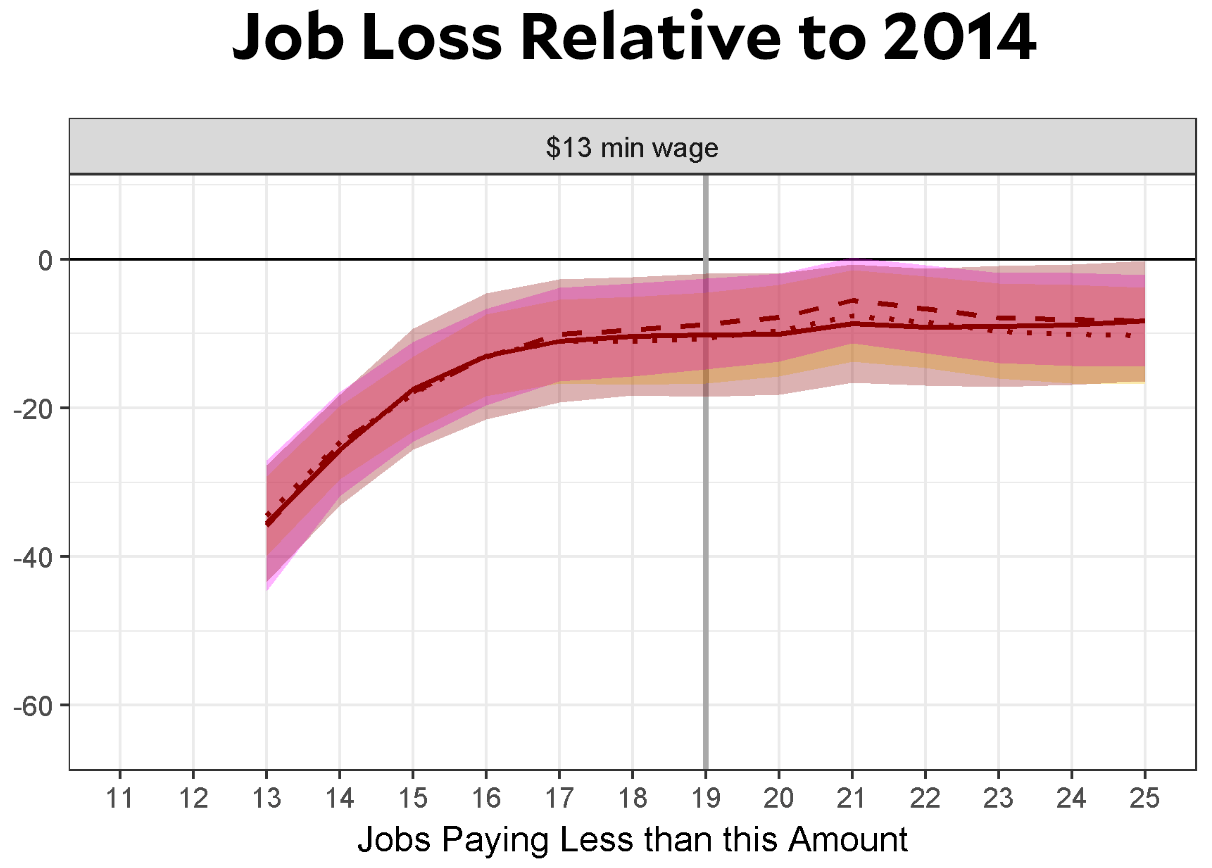By chance, another study of Seattle’s $15 minimum wage has just come out. It’s from the University of Washington group that’s been issuing periodic reports, and it comes to a different conclusion than last week’s study. Among jobs paying less than $19 per hour:
We estimate statistically insignificant hours reductions between 0.9% and 3.4% (averaging 1.9%) during the three quarters when the minimum wage was $11 per hour. By contrast, the subsequent minimum wage increase to $13 associates with larger, significant hours reductions between 7.9% and 10.6% (averaging 9.4%)
The authors suggest that Seattle lost about 10,000 low-wage jobs when the minimum wage increased from $11 to $13. If this is confirmed in subsequent studies, it suggests that a minimum wage of, say, $12 per hour, has a minimal effect on low-skill employment. But $15 will have a significant effect.
The effect on hours worked is similar. At $11, the reduction in low-wage jobs is small and probably illusory anyway: “It appears that any ‘loss’ in hours at lower thresholds is likely to reflect a cascade of workers to higher wage levels.” But at $13 it looks like this:

The key thing in this chart is that the solid line never reaches zero: “Thus, there is no evidence to suggest that the estimated employment losses associated with the second phase-in reflect a similar cascading phenomenon.”
This study is more pessimistic than previous studies, but it’s well done and scrupulously honest. Nor should it necessarily be a surprise. There’s a mountain of evidence that modest increases in the minimum wage have little effect on low-wage jobs, but the key word here is modest. We’ve never tested how high the minimum wage can go before it starts to have a serious impact on low-wage jobs, because no one has ever raised the minimum wage more than modestly. This means that the question of how high the minimum wage can go is an empirical one—and there’s no special reason to think it’s $15. It could be higher or lower. And if this study holds up, the answer at the moment is around $12.
One other thing worth noting: Among other rich countries, the minimum wage is roughly 50 percent of the median wage. Depending on how you measure it, that comes to $11-$13 in the United States. So if the ideal minimum wage turns out to be $12 per hour—roughly the same as it was in the 60s—no one should be taken aback.
UPDATE: EPI has released a critique of the new UW study: “The authors’ analysis…suffers from a number of data and methodological problems that bias the study in the direction of finding job loss, even where there may have been no job loss at all.” I won’t try to arbitrate this, since I don’t have the econometric chops to do it. Eventually this will all get sorted out, but it’s likely to take a few years.














